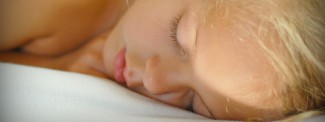Very few people pretend they have never dreamt. Pr. Isabelle Arnulf’s work, Head of sleep disorders at the Pitié-Salpêtrière Hospital and researcher at Paris Brain Institute, and her colleagues, prove that this is false. Everybody dreams, but some do not remember. Let’s focus on these non-dreamers...
Kill dragons, fly over oceans, be chased by monsters, get naked in public, reset exams... The dream is an altered state of consciousness in which the brain constructs a virtual world of images and striking sensations that we do not immediately identify as hallucinations. Some people have fascinating dream lives; however, a small proportion of the population does not remember their dreams and some even pretend they have never dreamt!
Pr. Isabelle Arnulf, a researcher at the Institut du Cerveau - ICM, works with patients with Parkinson’s disease. Most of these patients “live their dreams”, which means that, even asleep, they can talk, shout, laugh, cry or gesticulate. These behavioural disorders during paradoxical sleep (when we dream the most) also happen in healthy subjects with no other symptoms. As in the general population, around 3% of people suffering from these behavioural disorders during paradoxical sleep pretend that they never dream. Isabelle Arnulf’s team wanted to understand why.
BECAUSE OF MEMORY TROUBLES?
The researchers first wondered whether these patients simply had memory troubles. Different tests showed that they had the same level of memory and the same cognitive profile that those who remember their dreams. Would it thus be possible not to dream?
BECAUSE THEY DO NOT HAVE MENTAL IMAGING?
Researchers checked that these non-dreamer people were capable of mental imaginations, that they could for instance imagine the Eiffel Tower with their eyes closed: no deficit there either, no “afantasie” (inability to visualize a mental image, a rare neurological disorder).
BECAUSE THEY DO NOT DREAM?
By studying the sleep of these “non-dreamers” and observing their nocturnal activity in laboratory, researchers highlighted a dreamlike behaviour through act or speech overnight, indicating that patients are actually dreaming. Some live a violent argument, others smoke a cigarette... These dreams are clearly marked for an outside observer, yet none of the patients remembers these upon awakening, even though this awakening occurs during paradoxical sleep.
BECAUSE DREAMS DO NOT PRINT ON THEIR MEMORY?
If “non-dreamers” dream, the most likely hypothesis is that they do not remember because their dreams are not encoded, printed in their memory during sleep. In order to test this hypothesis, the next step consists in comparing the brain activity of “non-dreamers” to that of “dreamers” through functional brain imaging. This study could help understand what happens in the brain while dreaming and how this gets printed in the memory. Another study would consist in exploring whether dreams are printed (encoded) but not recalled: by giving “non-dreamers” clues about their dreams through video recordings (a word, a situation), in order to determine whether this helps them remember.
Behavioural disorders in paradoxical sleep are a great tool to study dreams and states of consciousness. The work of Isabelle Arnulf’s team show that everybody dreams, even though some people do not remember. The problem would be how dreams get collected and stored by the brain, without any further impairment of memory.







